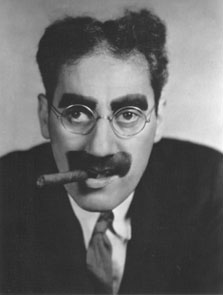
One of
the alleged proofs brought by Rabbi Student, from the Kuzari, is
based on the verses in Deut 17. Unlike the classical rabbinic
deception, which claims that the verses there refer to the Rabbis as
the final authority, this one tries a different angle.
“ R. Duran also notes the
following biblical passage.
Deut. 17:8-11
If a matter of judgement is hidden from you, between blood and blood, between verdict and verdict, between plague and plague, matters of dispute in your cities -- you shall rise up and ascend to the place that the L-rd, your G-d, shall choose. You shall come to the priests, the Levites, and to the judge who will be in those days; you shall inquire and they will tell you the word of judgement. You shall do according to the word that they will tell you, from the place that G-d will choose, and you shall be careful to do according to everything that they will teach you. According to the teaching that they will teach you and according to the judgement that they will say to you, shall you do; you shall not deviate from the word that they will tell you, right or left.
What possible knowledge is there that can be hidden? If there is no oral law, then the only basis for judgement is in the Torah which is open for anyone to study. Clearly, the entire need for the above process of going to the central court and following their ruling implies that there is an oral tradition which also serves as the basis for judgement [Rashbatz, ibid.; Rashbash, ibid.].”
Again,
this is not actually an attempted proof, but a question, and a
fallacy, perhaps Begging the Question fallacy or something of that
ilk. See
http://www.nizkor.org/features/fallacies/begging-the-question.html
The
question is asking what knowledge can be hidden, if not the oral law?
This claim is false in every possible way.
1) The
verse states “ If a
matter of judgement is hidden from you”, i.e. the plaintiff. The
plaintiff is unable to resolve the matter on a local level, either
due to lack of knowledge of the Torah, or the facts, or he is in
dispute with a defendant, and cannot resolve the dispute locally. How
exactly does this imply the existence of Oral Law?
2)
The claim made by the Kuzari also implies that since the Torah is
available to everyone, then there would be no need to go to the
Priest! But even if there was an oral law, it would also be
available to everyone, since all Israelites would allegedly require
knowledge of the oral law in order to practice it. So the presumption
of the Kuzari is false even when applied to the scenario that he
believes in, ie the pre-existence of the Oral Law.
3)
Notwithstanding the above, even if the precise case in dispute is
not explicitly mentioned in the Torah, this in no way requires there
to be an oral law. The verses in Deut 17 instruct the plaintiff to
go to the High priest, who was endowed with the Hoshen Mishpat, the
breastplate with Urim and Turim, whereby he could enquire for answers
from Heaven. A good
example of a Hidden matter is given in Nehemiah 7, where some people
cannot trace back their genealogy:
64
These sought their register, that is, the genealogy, but it was not
found; therefore were they deemed polluted and put from the
priesthood.
65
And the Tirshatha said unto them, that they should not eat of the
most holy things, till there stood up a priest with Urim and Thummim.
Even
supposing there was an alleged “Oral Law”, Nehemiah was unable to
solve the problem. Thus the Torah cannot be referring to the oral law
of the rabbis. Since the Rabbis claim that Nehemiah was part of the
Sanhedrin, this is a problematic verse, since it supports the Karaite
claim, but refutes the rabbanite claims.
Now we
have completed the refutation of all of Gil Student's proofs. But
something he says in his introduction should not go unnoticed.
“The
existence of an oral law that was given to Moses at Mt. Sinai is a
fundamental concept in [Rabbinic] Judaism. However,
the lack of a clear reference to an oral law in the biblical text has
led some to deny its existence.
In response to these deniers, a literature has developed to try to
prove the existence of an oral law.”
Here, Gil
actually admits that there is no clear reference to the Oral law
anywhere in the TNK. This is quite a problem. There is also no clear
reference to the New Testament or the Koran. All 3 follow-on
religions attempt to fins alleged references to their testaments in
the Old testament, and all of them engage in the kind of fallacy used
by the Kuzari. Again, I have to thank Gil Student for at least being
more honest that his many colleagues, in admitting that the Torah
nowhere mentions any oral Law.
As Groucho
Marx famously said, an oral contract isn't worth the paper it is
written on.
No comments:
Post a Comment